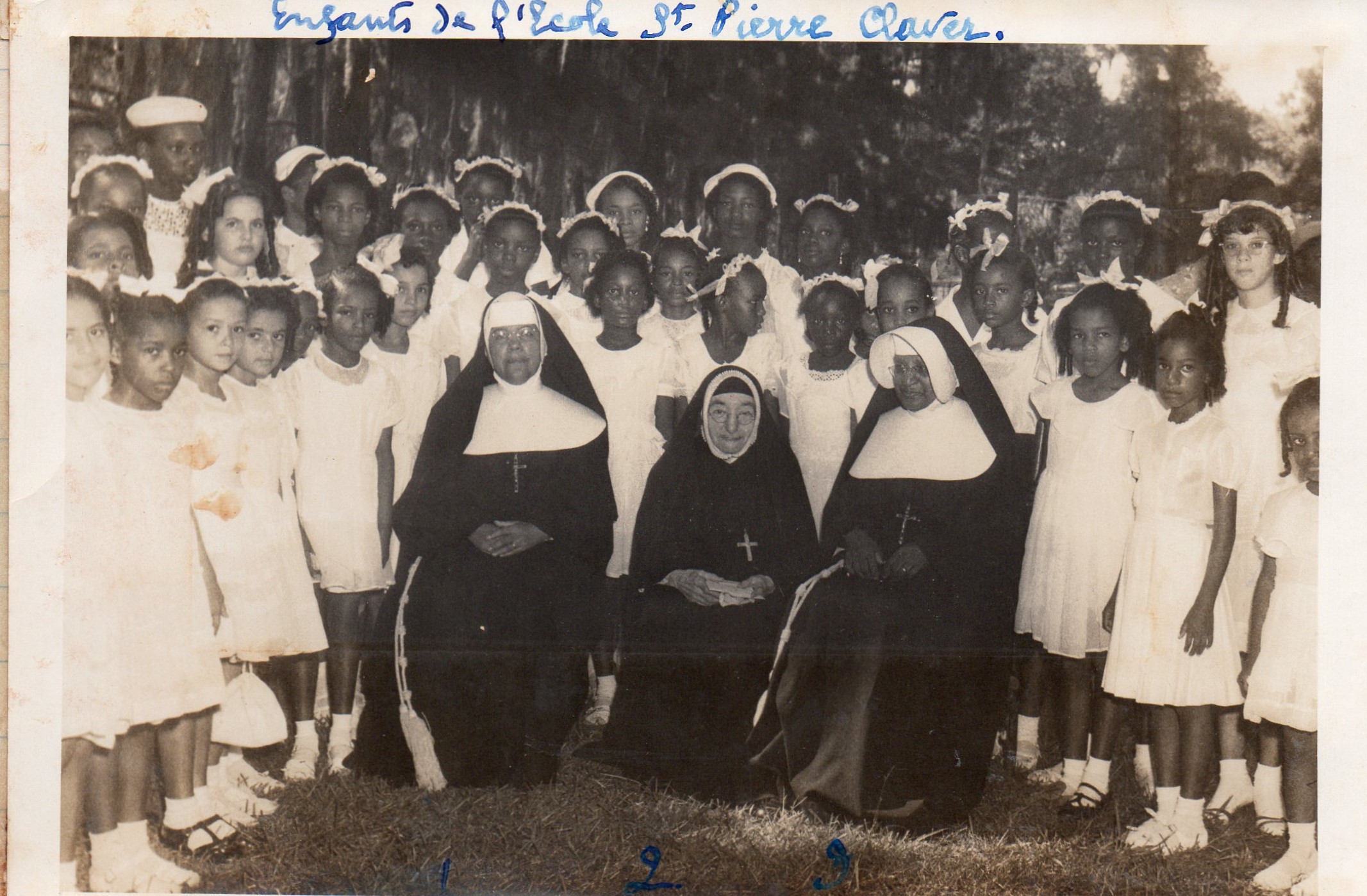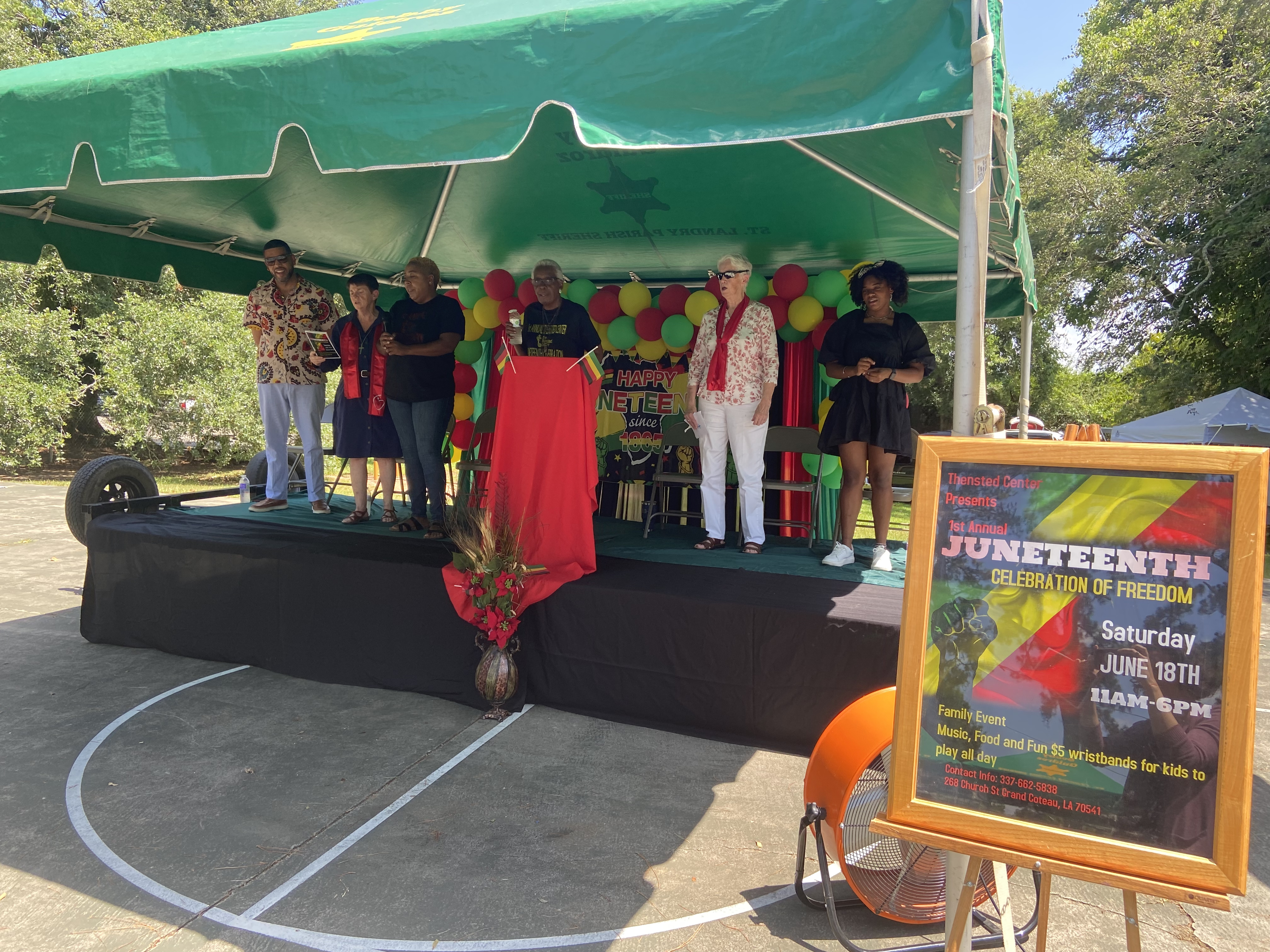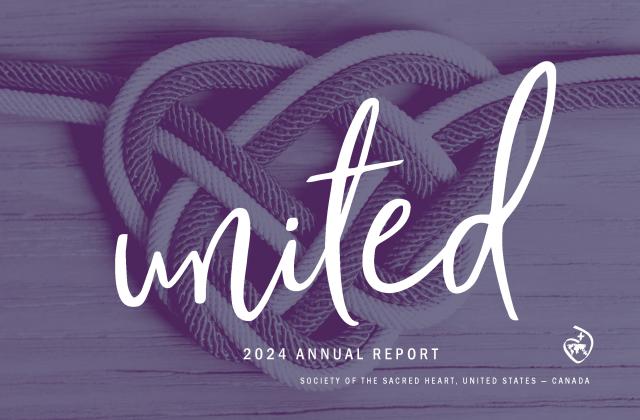For nearly 100 years, St. Peter Claver School provided quality Catholic education to African Americans in Grand Coteau, Louisiana. Its graduates became educators, clergy members, business owners, and the first Black female mayor of the town. The school and church complex served as an anchor for the African American community. This past June, the town of Grand Coteau held a reunion for graduates and friends of St. Peter Claver School. The Society of the Sacred Heart was invited to attend the reunion as special guests for their contributions toward the school. On behalf of the Provincial Team, Lynne Lieux, RSCJ, accepted a plaque recognizing the Society’s dedication to the education of African Americans in the area.
In 1875, the Religious of the Sacred Heart (RSCJ) in Grand Coteau opened a school to educate young African American girls in the building that once housed the convent's formerly enslaved people, .

By 1888, the school was growing and the need for more space was apparent. With contributions from the archbishop of New Orleans, the Superior General of the Society of the Sacred Heart, and the Jesuits of St. Charles College, a new building was erected on the convent grounds and the student body was expanded to include boys. The name of the school, Colored School of the Sacred Heart, was changed to St. Peter Claver School in the 1930s, and the school was relocated nearer St. Peter Claver Church in Grand Coteau.
In 1947, the RSCJ turned administration of the school over to Father Cornelius Thensted, S.J., who worked closely with the African American community in the town. He then invited the Sisters of the Holy Family (SSF) to assume leadership of the school. The RSCJ, however, continued to teach there, along with a number of lay teachers, most graduates of the school themselves. When public school integration began, this provided more options for children in the area, and enrollment at St. Peter Claver declined. Members of both the Society of the Sacred Heart and the Sisters of the Holy Family began to focus on other missions. In 1978, the school sadly closed its doors.
In 1982, a few years after St. Peter Claver School closed, Margaret “Mike” Hoffman, RSCJ, repurposed the former high school building. After assessing the needs of the rural poor communities in and around Grand Coteau, Sister Hoffman established the Thensted Center, an outreach center providing services for the under-resourced communities of the area.
This center, which has been in operation for 40 years and now under the direction of Julia Richard, offers numerous programs, administering especially to children, seniors, single parents, veterans, and the homebound. Bonnie Kearney, RSCJ, serves on the board of the Thensted Center, and the Schools of the Sacred Heart in Grand Coteau often work with the Center on various service projects.

On the same weekend as St. Peter Claver School’s reunion, the Thensted Center hosted its first annual Juneteenth Celebration. It was a day of music, poetry, food, and games. The planning committee hoped to acknowledge the history and accomplishments of the Black community and specifically celebrate youth and their success in education, careers, and community involvement. The holiday, celebrating the emancipation of enslaved African Americans in the United States, was especially significant coinciding with the school’s reunion weekend. The commitment of Black educators, parents, and administrators of St. Peter Claver School allowed for decades of quality education and community involvement in Grand Coteau.
Today, the former St. Peter Claver complex — the church, school buildings, and gym — are all still in use, repurposed in various ways to serve the spiritual, educational, and social needs of the Grand Coteau community.



